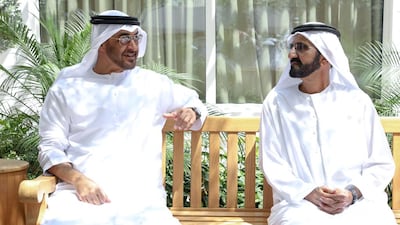Sometimes the best way to discuss sensitive, important and difficult issues is to take the simplest approach: invite people to sit and listen with an open mind.
An ideal setting for such discussions is the majlis – meaning “a place to sit” or where people sit – that has survived the test of time and evolved over the years to remain one of the most cherished and important rooms in most households in the UAE and other Gulf nations.
In 2015, the majlis became one of the world’s great cultural treasures when the UN cultural organisation, Unesco, added it to its Intangible Cultural Heritage register along with qahwa (Arabic coffee) and Al Rafza traditional dance.
Unesco described the majlis as “open to all people” and “playing an important role in the transfer of oral heritage”.
“It is typically a large space with carpets on the floor and cushions against the wall,” it added. “There is usually a stove or fire to prepare coffee and other hot beverages. Community elders are considered true bearers. Judges and religious sheikhs have special importance in the majlis as they adjudicate on disputes and clarify political, social and religious rights and responsibilities.”
Over the past 10 years, I have attended many majlises hosted by men and women on different themes, including literature and poetry. One of the most prominent majlises that is open to the public twice weekly during Ramadan is that of Sheikh Mohammed bin Zayed, Crown Prince of Abu Dhabi and Deputy Supreme Commander of the Armed Forces, who holds a special series of lectures every year throughout the month of fasting.
Speakers are invited from around the world and topics discussed vary from space and agriculture to social media, religion and politics. These talks on a diverse range of topics are bound to leave one with new knowledge and a new perspective at the end of the holy month.
One of the topics close to my heart is humanitarian work. So I was particularly interested to attend the past week’s lecture titled “UAE’s Soft Power”. The guest speaker was Dr Mohammed Ateeq Al Falahi, the secretary general of the Emirates Red Crescent.
He highlighted the sacrifices and the danger relief workers face in conflict zones, from betrayal by groups in power such as Hamas to bombings, as well as the amount of effort they put in logistics and getting the aid to those who need it most.
“If we can’t fly the aid over, we use ships; if we can’t use ships, we use trucks and cars. If that fails, we use small boats and if all fails, we walk to our destination,” he told a packed majlis, where even the extension to the main hall was full.
I talked to some of those who came – from as far as Fujairah and Ras Al Khaimah. They admitted that they took aid work for granted and that they were inspired to join in and volunteer after seeing the real impact of giving and volunteering. This is the power of a majlis with great speakers – it can truly change people’s perceptions.
I recalled how sometimes in some of the most dangerous cities and villages I noticed in some corner the Emirati flag fluttering over a centre or a clinic with stocks of aid. All these often go unreported as usually those involved in such humanitarian activities, whether they are from here or elsewhere, tend to focus on getting the job done, and work diligently in the background year after year building bridges of compassion and care.
Set-ups and designs of the majlises might have changed over decades, from simple tents to modern structures, but a majlis remains more than just, say, a living room. It is a rare place where people can take a step back, listen, meet others and get to know about so many things in a relaxing and open atmosphere. Many people may not even be officially invited and it’s not necessary to agree with the viewpoints expressed by individuals – just respect them.
We are lucky that such forums are still alive and active.
One wise elderly gentleman from the United Kingdom made a comment as he was leaving a majlis: “We may have living rooms in western homes, but today, we don’t actually live in them, we spend the time watching TV and looking at our phones, typing instead of talking and listening.”
The beauty of a majlis is that in many ways it captures the pulse of a nation and gives us a chance to meet people from older generations. We should spend more time listening to them and learning from them as we sit and sip our coffee.
rghazal@thenational.ae
On Twitter:@arabianmau

